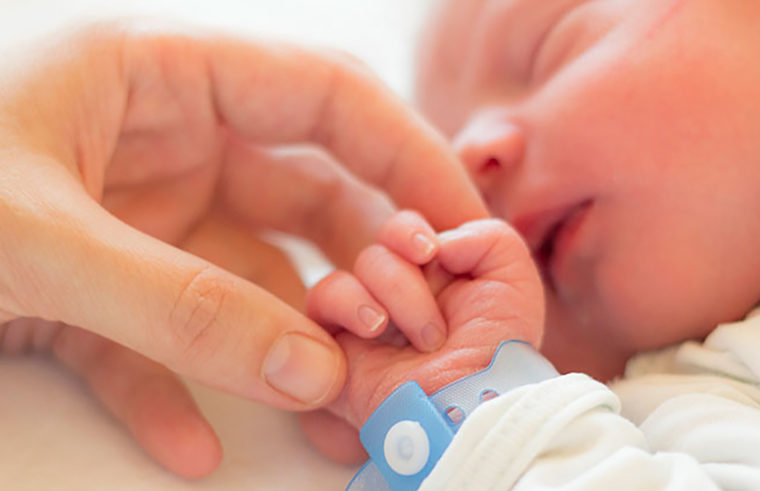Important: This is why your baby needs the Vitamin K shot at birth

Along with all the other surprises that come with having a brand new baby in your arms, is the news that the tiny infant you’re holding in your arms will receive two needles. One is the first in the schedule of hepatitis B vaccines (there are usually three given in total), and the second is a Vitamin K injection, and this is not a vaccine.
While most parents will follow the advice of health professionals and accept the routine jabs for their babies, it is their right and responsibility to question any treatment given to their children, particularly as it appears a growing number are allowing anti-vaxers to influence their decisions in this area of their child’s future health.
So here’s why your baby needs the Vitamin K shot at birth.

What is Vitamin K?
Vitamin K is a naturally occurring vitamin in our bodies that helps our blood to clot to prevent serious bleeding.
Why is Vitamin K given to newborns?
Babies are born with very little Vitamin K because it doesn’t cross over from the placenta and their gut is too immature to produce it, regardless of whether they are breastfed or formula fed.
“With low levels of Vitamin K, some babies can have very severe bleeding – sometimes into the brain, causing significant brain damage,” Better Health explains.
“This bleeding is called haemorrhagic disease of the newborn (HDN).”
Before the routine injections were introduced in the 1970s, the natural Vitamin K deficiency killed around 14 babies per year in NSW. Today the injections are credited for bringing that mortality rate closer to zero.

How is Vitamin K given to my baby?
Parents were once asked to choose between giving their babies two to three doses of Vitamin K drops in their first four weeks of life or a single injection at birth.
While parents can still request the oral option, it is more complicated because it requires several doses and is considered less effective and not suitable if the baby is ill, born prematurely or if mum has taken medication for epilepsy, blood clots or tuberculosis during pregnancy.
Better Health explains that when encouraged to choose in the past, many parents opted for the drops and “several babies in Australia had severe episodes of bleeding, which were probably due to HDN. It seemed very clear that getting Vitamin K by one injection is safer and more effective than by three sets of drops.”
How many times does my baby need to be given Vitamin K?
Just one injection or one course of oral treatment is needed to protect your baby until they begin producing the vitamin for themselves.
Does Vitamin K injection have any side effects?
There are no major side-effects caused by the Vitamin K injection, apart from possible temporary soreness at the site where the needle is given.
Why is it important I give consent?
Parents have the final say over whether or not their baby is given Vitamin K at all and, without that consent, it cannot be given and baby remains at high risk of HDN.
In the recent past, The Sunday Telegraph reported six deaths from HDN in babies whose parents refused to consent to the injection in the past 20 years:
Lismore paediatrician Dr Chris Ingall said he had cared for a one-month-old baby that died of haemorrhaging on the brain in 2010 because the mother had been told by a midwife not to get the shot.
“One of the hardest things a paediatrician ever has to do is tell a patient their baby is going to die and in this case, the mother had refused the vitamin K injection for her newborn just a few weeks prior,” Dr Ingall says.
He said the homebirth and anti-vaccine movement were consistently involved.
 Need some support to be the best parent you can be? Our Parent School parent coaching experts can help. Click to find out more or book a one-on-one session.
Need some support to be the best parent you can be? Our Parent School parent coaching experts can help. Click to find out more or book a one-on-one session.








